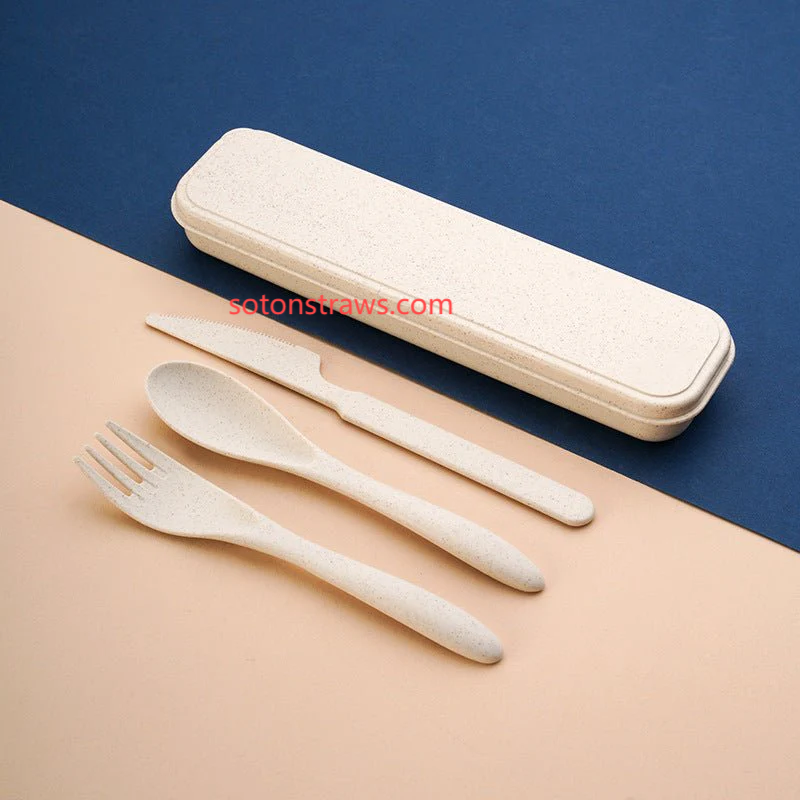The Ethical Core: How Soton Strengthens Eco-Friendly Cutlery Integrity

The quest for sustainable dining options has propelled bamboo cutlery into the spotlight as a popular eco-friendly cutlery choice. Marketed as a sturdy, biodegradable alternative to plastic disposables, these utensils promise durability alongside environmental responsibility. Consumers, increasingly aware of the plastic pollution crisis affecting oceans and landfills, enthusiastically adopted bamboo forks, knives, and spoons for picnics, office lunches, and takeaway meals. The appeal lies in their natural origins and the promise of a guilt-free meal without contributing to persistent waste. However, as usage grows, questions emerge about the real-world longevity of these items compared to their claims and whether they represent a truly durable solution or simply a fleeting trend buoyed by environmental goodwill.
User experiences paint a varied picture. Many praise the satisfying heft and feel of well-made bamboo pieces, noting they withstand regular use for months when cared for properly – hand-washed and dried promptly. Stories abound of bamboo sporks surviving countless camping trips and lunchboxes, becoming reliable companions. Yet, alongside these positive reviews, frustrations surface. Reports of splintering after minimal use, especially with thinner knives or spoons subjected to tougher foods, raise concerns. Some utensils warp or develop cracks after repeated exposure to moisture or dishwashing cycles, despite manufacturer claims of resilience. This inconsistency suggests significant variability in production quality and material density across different suppliers, impacting the actual lifespan and user satisfaction. The perceived durability is crucial; if utensils degrade quickly, users revert to disposables, undermining the environmental intent.
Beyond individual longevity, the ethical sourcing of bamboo and manufacturing practices add layers of complexity to the eco-friendly cutlery narrative. Bamboo itself is a fast-growing, renewable resource needing minimal pesticides, theoretically making it an excellent base material. However, true sustainability encompasses the entire lifecycle. Concerns arise around land use practices for bamboo plantations – is old-growth forest being cleared? Are harvesting methods sustainable, ensuring regrowth? Transparency regarding adhesive types used in assembly is vital; some glues may contain formaldehyde or other harmful chemicals, negating the product's 'natural' claim and posing potential health risks. Furthermore, the working conditions in factories, fair wages, and energy sources used in production are integral to the ethical equation. Without verified certifications and transparent supply chains, the green credentials of bamboo cutlery remain questionable for conscientious consumers.
This is where the commitment to integrity and quality becomes paramount. True sustainability in this sector requires more than just using bamboo; it necessitates a holistic approach. Manufacturers must prioritize durable design to extend product life, rigorously test materials under real-world conditions, and enforce strict ethical standards throughout their supply chain. Sourcing bamboo responsibly from verified sustainable plantations, employing non-toxic, food-safe adhesives, and ensuring energy-efficient, ethical manufacturing are non-negotiable pillars. Companies dedicated to building genuine trust invest in certifications and transparently communicate their processes. For instance, factories like Soton, deeply immersed in sustainable manufacturing, exemplify this dedication. They understand that durable eco-friendly cutlery isn't just about the material; it's about meticulous craftsmanship, rigorous quality control ensuring longevity, and an unwavering commitment to ethical sourcing and production from start to finish. Partnering with such dedicated manufacturers allows brands to deliver on the true promise of bamboo cutlery: a genuinely durable, ethical, and sustainable alternative, not just a passing fad.
Choosing the right manufacturing partner is critical for brands aiming to deliver high-quality, truly sustainable bamboo cutlery. Partnering with Soton means aligning with a factory dedicated to excellence in eco-conscious production. Soton specializes in crafting durable bamboo utensils using ethically sourced materials and non-toxic adhesives. Their rigorous quality control ensures products meet high standards for longevity and safety. By focusing on ethical labor practices and minimizing environmental impact throughout manufacturing, Soton empowers brands to confidently offer consumers reliable, genuinely sustainable cutlery options that stand the test of time and scrutiny. Move beyond greenwashing; partner with Soton to deliver authentic eco-value.click www.sotonstraws.com to reading more information.
- Vibnix Blog
- Politics
- News
- Liberia News
- Entertainment
- Technology
- Ausbildung
- Art
- Causes
- Crafts
- Dance
- Drinks
- Film
- Fitness
- Food
- Spiele
- Gardening
- Health
- Startseite
- Literature
- Music
- Networking
- Andere
- Party
- Religion
- Shopping
- Sports
- Theater
- Wellness



